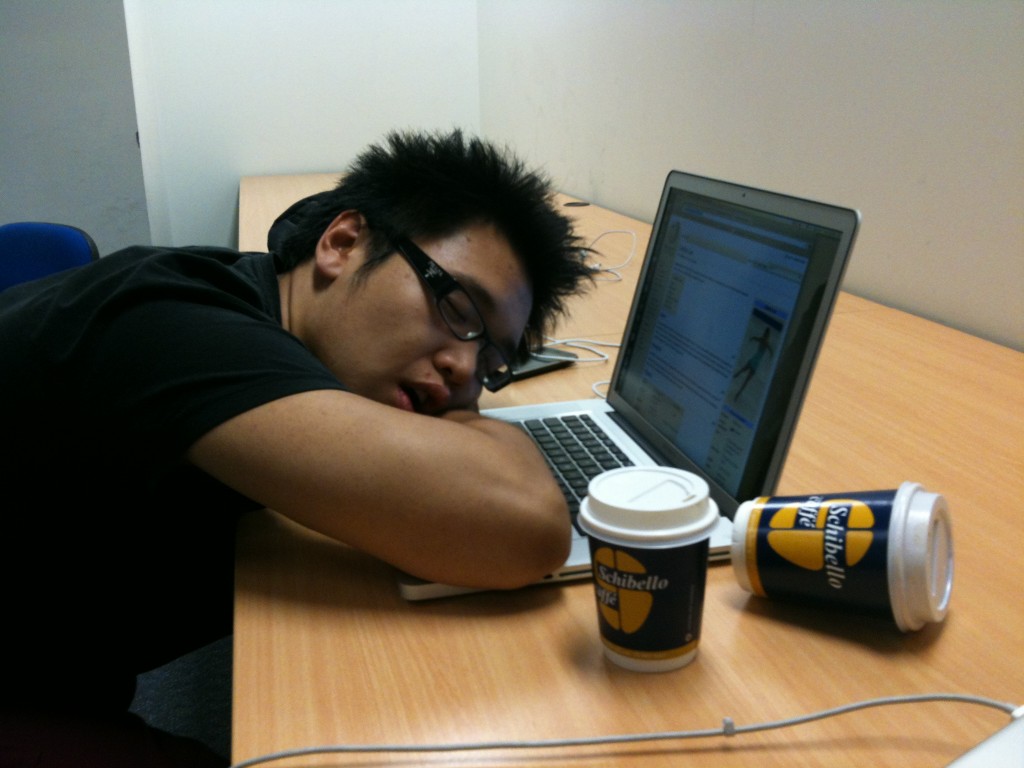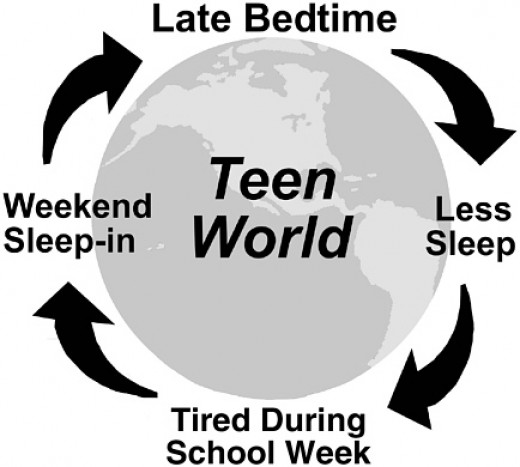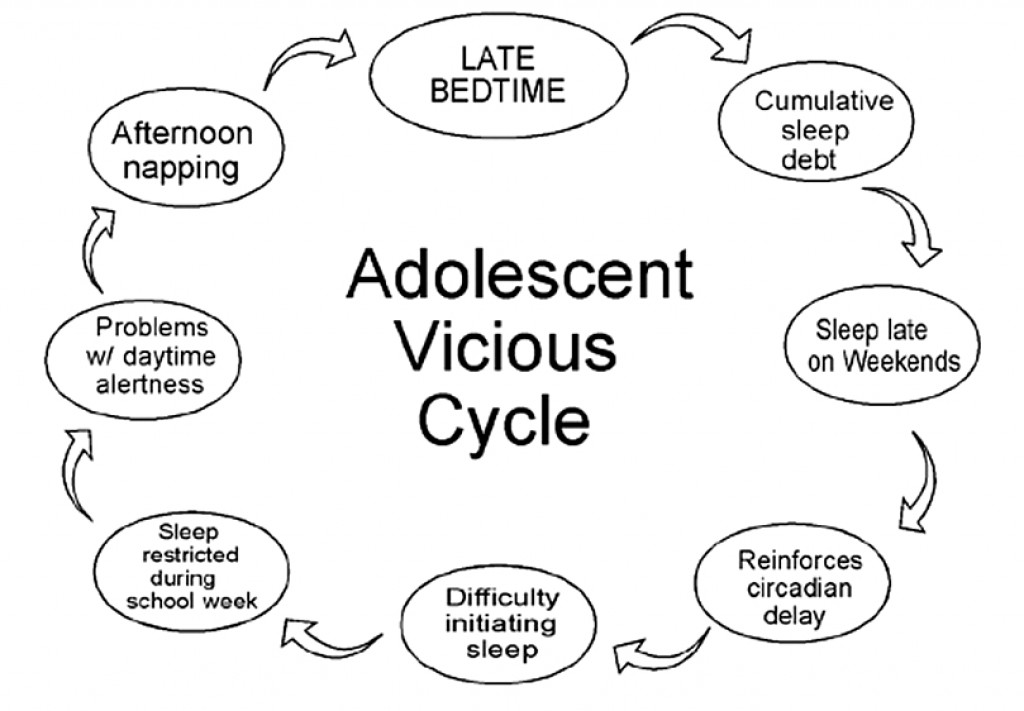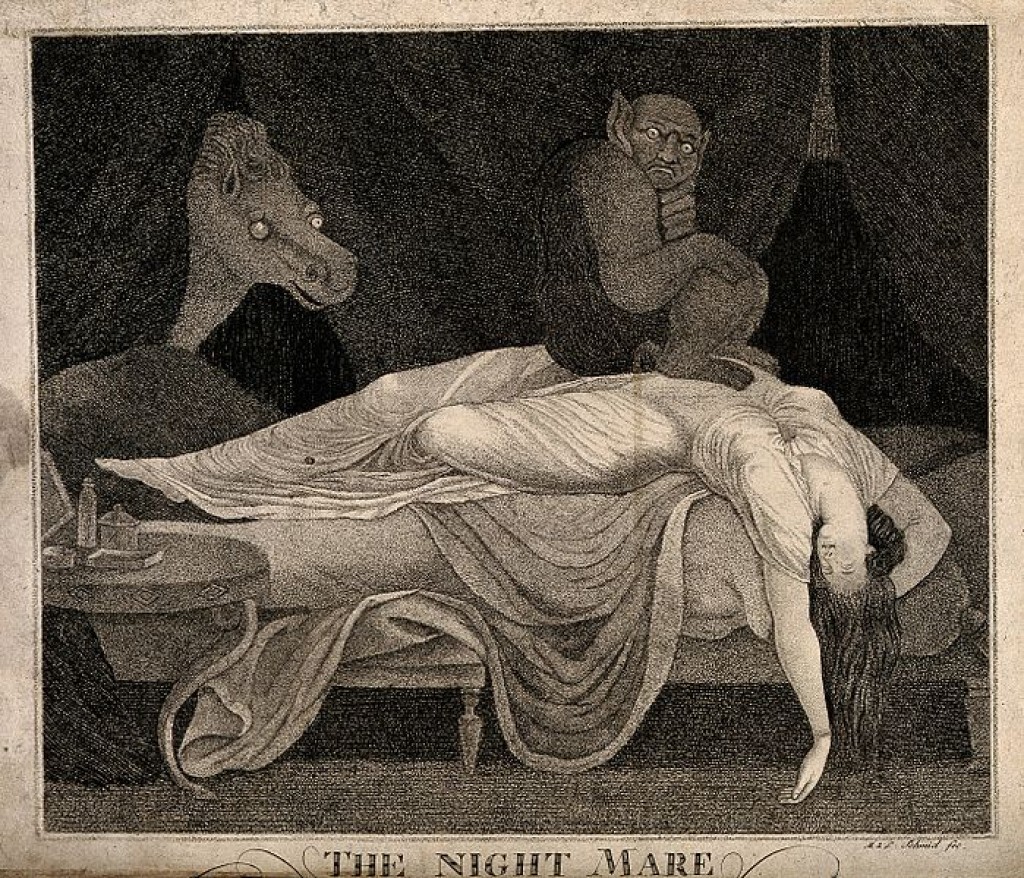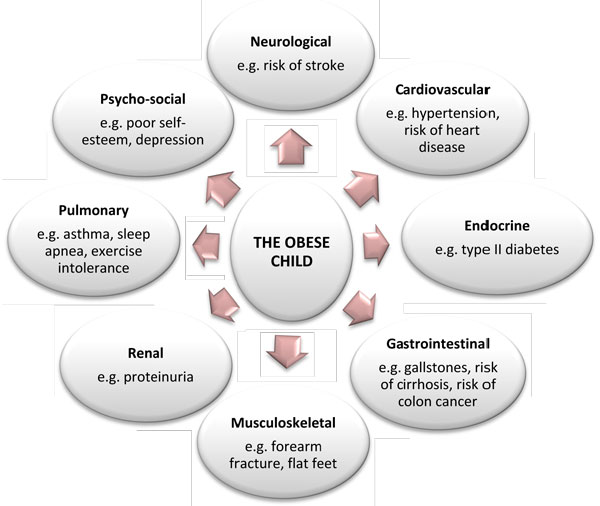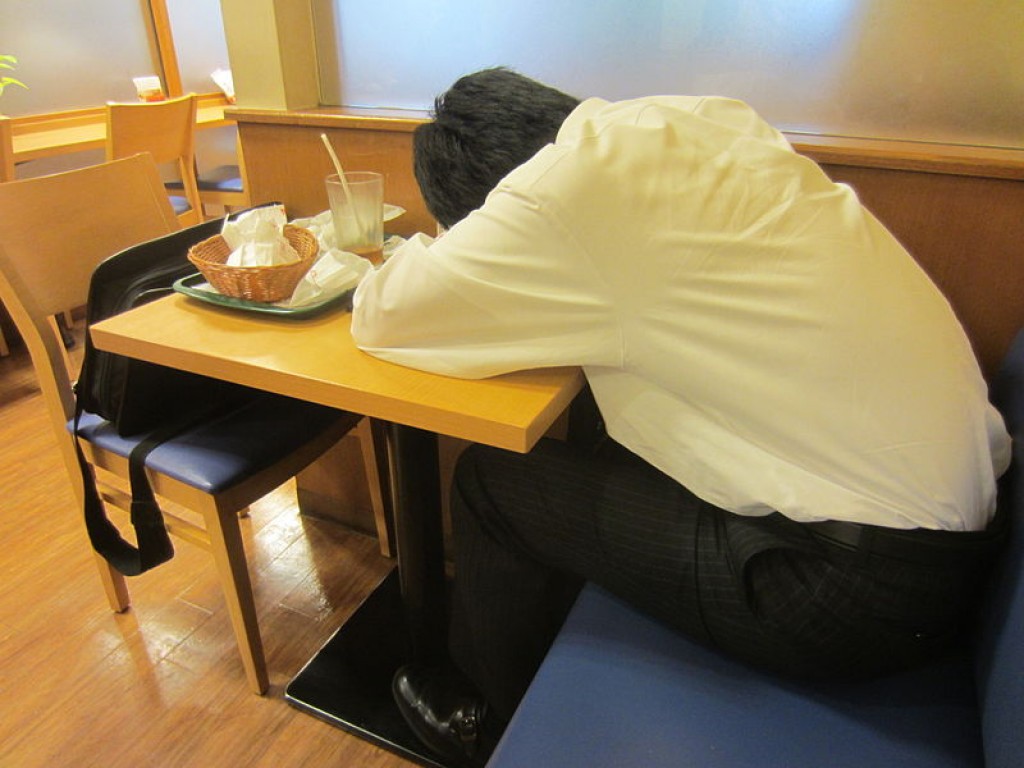Teenage Sleep Requirements, Lack of Sleep, Ensuring Teens Get Enough Sleep
There are several questions parents ask about the sleep patterns and requirements of school aged children and teenagers.
- What are the normal teenage sleep patterns?
- How much sleep do teenagers need?
- How much sleep are your children getting?
- How does lack of sleep affect their health
- How does lack of sleep affect their mental state and mood?
- How does lack of sleep affect their performance at school?
- How does lack of sleep affect their social interactions?
- How can parents ensure they children get enough sleep? What can be done?
- Should Colleges start later to better align with teenage sleep patterns?
Parents know that the sleep patterns of children changes dramatically when they become teenagers. When children are young they wake early and wake everyone else up at dawn or some ungodly hour, even on weekends.
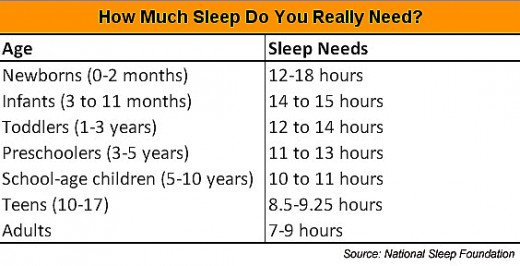
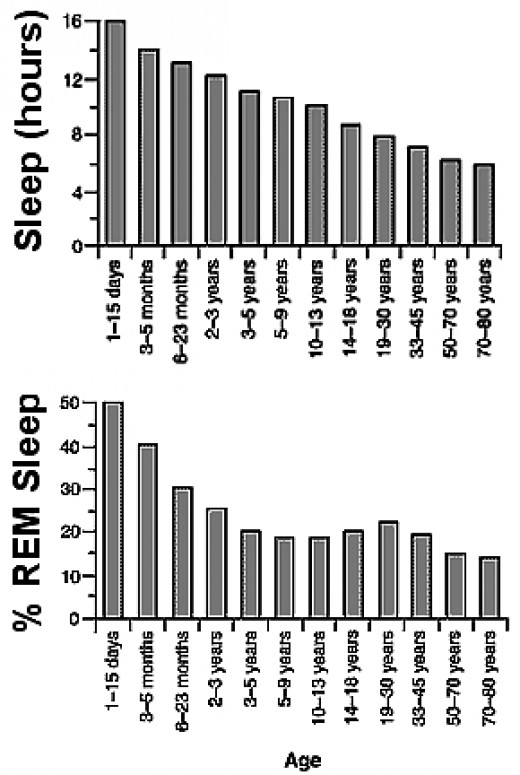
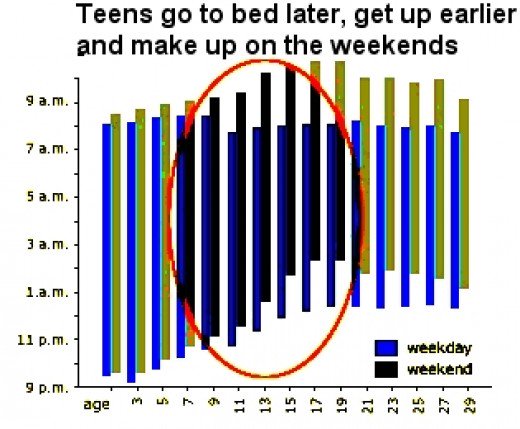
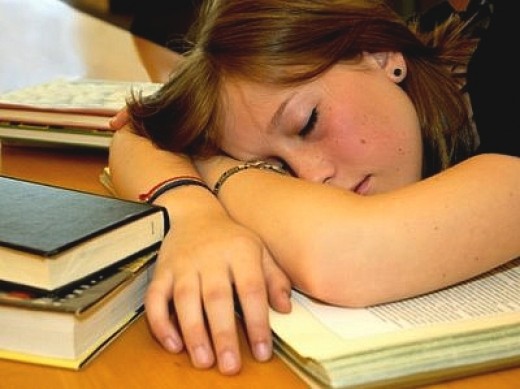
After puberty the pattern changes - they go to bed later and later, often after their parents go to sleep. Many play computer game late into the night and work late on assignments left to the last minute. They sleep-in and it is a daily struggle to get them out of bed and off to school or college each morning.
There is a large collection of research and lots of anecdotal information that confirms that many teenagers simply do not get enough sleep. This can cause all sorts of problems with their health, can trigger weight gain, can cause depression and social exclusion and can impairing school performance and may be the cause of mood swings and communication issues. Many parents don't know what to do about it.
How much sleep do teenagers need?
According to the US National Sleep Foundation, newborns should sleep about 12 to 18 hours, reducing to 12 to 14 hours for children aged 1 to 3; 11 to 13 hours for preschoolers 3 to 5; 10 to 11 hours for schoolchildren ages 5 to 10; teen (10-17) 8.5 to 9.25 hours and adults 7-9 hours.
As children grow and mature as adolescents, both the stages of sleep and the sleep cycle remain largely unchanged. But REM dreaming changes throughout life (see table). Another major change is the timing of their sleep - their circadian rhythm. The preferred times for going to sleep and waking are generally delayed in most adolescents. Most high school students go to bed much later at night because their internal clock is reset and they don not feeling sleepy until later. Caffeine laced drinks and adrenalin rushes when playing games do not help.
Many school start times are generally much earlier than the typical teenager's natural awakening time. Consequently, many students are woken up early and have lack of sleep problems. Exposure to bright artificial indoor light in the evening can make things worse as the internal clock does not set properly. Most students attempt to catch up on their missed sleep by sleeping-in much later on the weekends, but this only puts their internal clock further out of whack with their weekday schedule and makes it harder to get up during the week.
A pilot study of 100 teenagers looked at the suggestion that increased technology use and relatively high caffeine consumption at night by drinking energy drinks could be the cause for some of the lack of sleep and associated problems. The Table shown below is adapted from this study Adolescents Living the 24/7 Lifestyle: Effects of Caffeine and Technology on Sleep Duration and Daytime Functioning .
The study showed that 87% of the students had a sleep deficit of at least one hour compared with the recommended nine hours, and 15% slept for less than five hours. More than half has difficulty getting to sleep on week nights and about a third has fallen to sleep at school. About 80% consumed caffeine and the majority has cell pones and televisions in the bedroom.
Table 1. Teenage Sleep Duration and Possible Causes
|
Characteristic
|
Percentage
|
|---|---|
|
Television in bedroom
|
66
|
|
Computer in bedroom
|
30
|
|
Cell phone
|
90
|
|
iPod or MP3 player
|
79
|
|
Drinks caffeine
|
85
|
|
Difficulty falling asleep-Week nights
|
63
|
|
Difficulty falling asleep-Weekends
|
33
|
|
Hard to stay awake during day
|
46
|
|
Hard to stay awake during school
|
44
|
|
Fell asleep during school
|
33
|
|
Sleepy before lunch
|
29
|
|
Sleepy after lunch
|
19
|
|
Naps after school
|
37
|
|
Naps on weekend
|
42
|
|
Sleep Duraion on school nights 3-5 hours
|
15
|
|
Sleep Duraion on school nights 6-8 hours
|
62
|
|
Sleep Duraion on school nights 8-10 hours
|
20
|
How much sleep are your children getting? Do you really know?
How can you and your teenage children better understand how much sleep they are getting and to become aware of their sleep deficits? One suggestion is to use a diary to record the seep patterns over week or a fortnight. If they are willing, get them to do it themselves. Record lights-out times, how long it takes to fall asleep, wake-up times and whether they woke up themselves. This diary will provide a very good base for the child to discover their sleep patterns,. Schools and other organisation should be encouraged to run similar surveys for their classes to increase the awareness of the issue of sleep deficits and the effect it can have on health, well-being and performance at school.
How does lack of sleep affect their health and well being?
There are many studies on this. James Maas, who is a sleep researcher at Cornell University has stated that most teenagers are effectively “walking zombies” because of their lack of sleep. Many studies have shown that more than 85 percent of teenagers slept less than 9 hours a night, and about 10 percent slept less than 6 hours, only two-thirds of the average requirement. One study found that high school students that had lower grades slept about 30 minutes less each night and went to bed more than 30 minutes later than those who got the higher grades.
The worst and most obvious consequences of lack of sleep are the increased risks of injuries and deaths caused by lapses in attention and delayed reaction times, such as while driving.
How does lack of sleep affect their performance at High School or College
Sleep deprivation has four major effects on learning.
- Students are inattentive in class
- Their learning, engagement and knowledge acquisition is impaired
- Their ability to retrieve information is reduced
- What is learned during the day is consolidated during sleep at night. This ability is 'lost.
After five nights during the week with too little sleep, many teenagers try to catch up on their beauty sleep on the weekends, sleeping-in until 11 a.m. or noon, and sometimes later. But this solution can have negative consequences because it further disrupts their biological clocks and can make it even harder for them to get up on time during the school week.
How does lack of sleep affect their mental state and mood?
The other major consequence of sleep deprivation in teenagers include an erosion of happiness and feelings of well-being. There is also an enhanced risk of depression and other mood disturbances especially for those with an existing vulnerability.
How does lack of sleep affect their social interactions?
Lack of sleep affects how teenagers interact with their peers and may lead them to decline may opportunities to interact socially with their friends. If the teenage is tire and irritable they are less likely to be liked and to make friends.
How can parents ensure they children get enough sleep? What can be done?
School in many districts that have adopted later start times. These schools and colleges have reported improvements in average grades, a decline in dropouts and some reduction in the number of traffic accidents. It can be done simply with minimal disruption. For example, by taking 5 minutes off the time between classes and reducing the lunch break, one school avoided having to extend the finish time for the school, which would otherwise have interfere with sports programs, jobs and other after school activities.
How can Teenagers be encouraged to have more sleep?
Some suggested Improvements are:
- School districts should start the day later for adolescents.
- School projects and class discussions should promote an awareness of the potential problems and risks. This should include adding items to the curriculum about sleep and biological rhythms to help students to make informed decisions about their sleep schedules.
- School-sponsored late-evening activities should be limited.
- Parents should monitor, identify and set “an appropriate bedtimes”, even to the extent of setting timers on internet modems and games
- To reset and maintain the sleep-wake cycle, teenagers should avoid stimulating activities and bright lights late in the evening and get daylight exposure in the morning.
- Teenagers should stop drinking caffeinated drinks after the evening meal.
- Families should establish relaxing pre-sleep rituals to help students get to sleep quicker.
